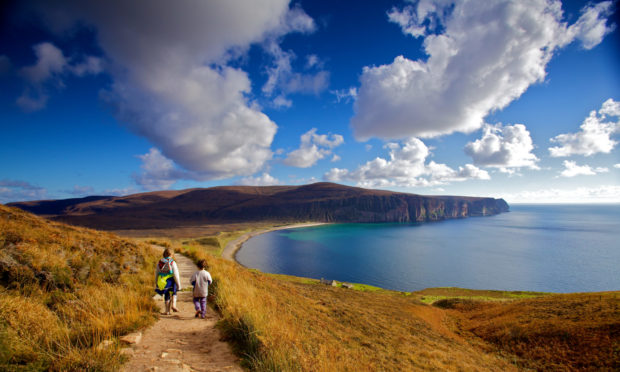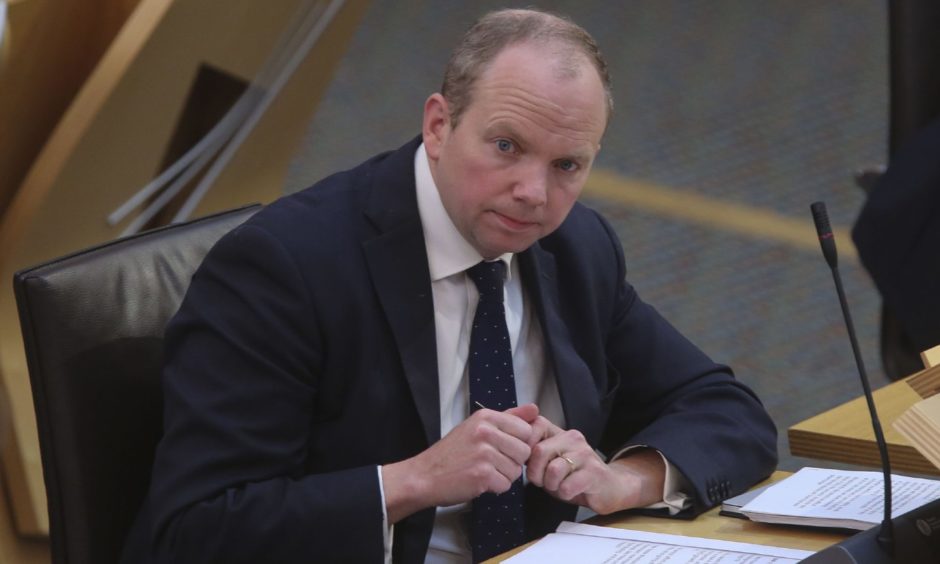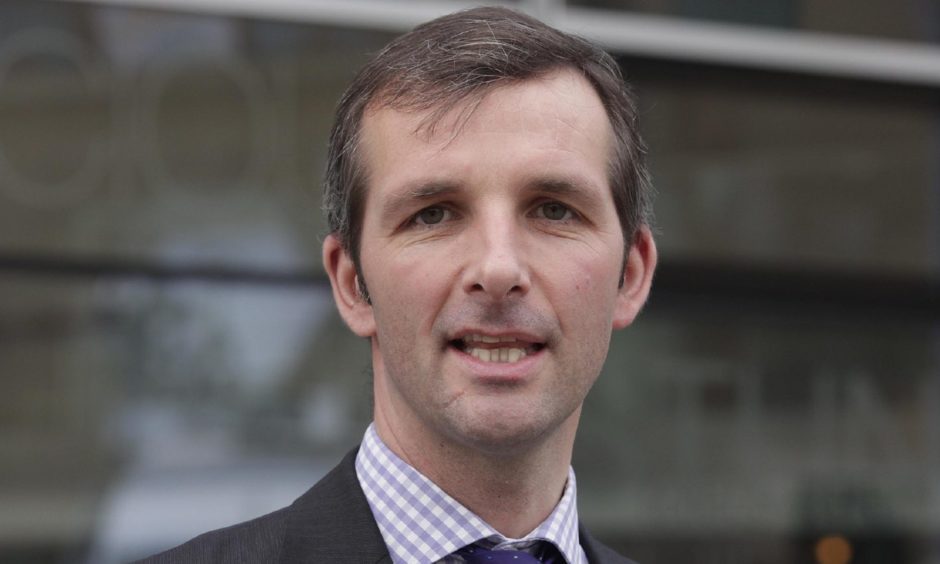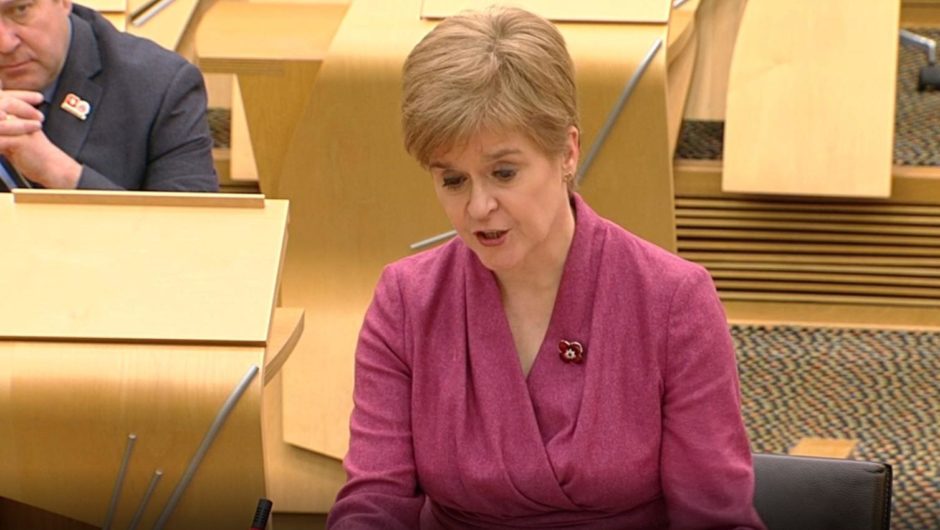Islanders will be allowed to meet with another household inside their homes in groups of up to six from Friday, Nicola Sturgeon has said.
The easing of household gathering restrictions on Shetland, Orkney and the Western Isles will not be replicated on the mainland with existing measures remaining in place elsewhere across the north and north-east.
The first minister said it was hoped that measures could be relaxed in Aberdeen City, Aberdeenshire and Argyll and Bute “soon”, but current arrangements are to be kept in place in the meantime.
We are able to make this change because case numbers in these island authorities are very low and sporadic, and we recognise that the social isolation caused by such a restriction is often exacerbated in island communities where there are not as many public places to meet.”
Nicola Sturgeon
Updating Holyrood on changes that will come into force at the end of the week, Ms Sturgeon said Angus, Fife and Perth and Kinross would face stricter measures, moving from tier two to tier three of the restrictions.
By joining the central belt, Dundee and Ayrshire in level three pubs and restaurants in Angus, Fife and Perth and Kinross will be prohibited from selling alcohol and will close at 6pm, with last entry at 5pm.
Under level three restrictions, people should not undertake non-essential travel outside their local authority area.
Measures relaxed
Orkney, Shetland and the Western Isles, which are currently in level one, were the only local authority areas to benefit from a relaxation of the measures.
Highland and Moray are also in level one – the second-most relaxed tier of the five-tier system – but the virus was considered too “volatile” in those areas to allow household gatherings.
Ms Sturgeon said: “There is one restriction that we intend to ease for people living in Shetland, Orkney and the Western Isles.
“From Friday residents of those three island authorities will be able to meet with one other household inside their homes, up to a strict maximum of six people.
“We are able to make this change because case numbers in these island authorities are very low and sporadic, and we recognise that the social isolation caused by such a restriction is often exacerbated in island communities where there are not as many public places to meet.”
But Ms Sturgeon emphasized that there was an important exception to the new arrangement. Anyone who goes to or returns to the islands from the mainland will have to avoid in-house mixing for a period after their arrival.
“Unfortunately, we do not yet consider it prudent to lift this restriction for people living in Highland and Moray, the other level one areas,” Ms Sturgeon said.
“Although cases in these areas remain relatively low, we have seen some volatility in recent days.
“So to people living across the Highlands and in Moray, as for people in the rest of the country, we continue to ask that you do not visit each other’s homes – except for essential purposes, such as childcare, looking after a vulnerable person or being part of an extended household.”
Testing demand
In order to protect islanders, Conservative health spokesman Donald Cameron has called on the Scottish Government to introduce regular and rapid Covid testing for Calmac ferry staff, following outbreaks on the Uists, Lewis and Mull.
Mr Cameron, a Highlands and Islands MSP, said: “Although there has not been a direct causal link identified between the outbreaks on the islands and Calmac’s operations, it is a fact there has been an outbreak among staff on a ferry serving the Western Isles.
“And, given the vulnerability of our island communities, owing to a lack of emergency medical facilities and ICU capacity close to hand, we must be vigilant to minimise the possibility of transmission.
“The First Minister has just today indicated that the relaxation of restrictions in the Western Isles, could be put at risk by the importation of the virus.”
Mr Cameron added: “I believe it is crucial that the Scottish Government acts quickly to establish a system of rapid Covid-testing on all publicly funded ferry services.”
Lib Dem Orkney MSP Liam McArthur welcomed the relaxing of restrictions on the islands. Mr McArthur said: “Having raised this issue with the First Minister on two separate occasions at the end of last month, I’m pleased that she has now agreed to ease restrictions in this small but important way.
“It will come as a relief to many in Orkney and the other islands affected that small, indoor gatherings can now take place again.
“As we enter winter, meeting outdoors is simply not a realistic or practical option. Continuing with such a restriction risked isolating many individuals, some of whom may already be extremely vulnerable, and thus impacting on people’s mental health and wellbeing.”
‘Very good news for the Islands’
The news was also welcomed by Western Isles Council leader Roddie Mackay, who said: “This is very good news for the Islands. It is testament to our communities that this relaxation has been introduced.
“The Comhairle has been making the case for household meetings and as recently as yesterday evening we, together with our colleagues in Shetland and Orkney, met with Cabinet Secretary Aileen Campbell to continue that discussion. So we are very pleased that Government has listened and responded positively.
“Of course, the reason we have been able to do this is because people have been so compliant with the rules and guidelines and I would encourage everyone to continue doing so.”
‘Signs of stability’
Ms Sturgeon said Aberdeenshire, Aberdeen City, the Borders, Dumfries and Galloway, and Argyll & Bute will all remain at level two.
But she added: “These are all areas that will be hopeful of a move to level one soon. However, while there are some signs of stability and even improvement in most of them, there is not yet sufficient evidence of a sustained decline in the number of cases. Indeed, in the Borders, and to a lesser extent in Dumfries & Galloway, we have seen an increase in cases in the most recent data.
“For these reasons, we consider it sensible for these areas to remain in level two for now – but we remain hopeful that some or all of them will move to level one soon.”
Under level two restrictions pub, bars and restaurants can open but restrictions on hours may apply and alcohol can only be consumed indoors with a main meal.
Level one results in a more “reasonable” degree of normality. Hospitality has a 10.30pm curfew. Events, like weddings, are restricted to a maximum of 20. Apart from in the island authorities, there should not be household gatherings.
‘No plans’ for ferry staff tests
A Scottish Government spokesperson said: “There are currently no plans to carry out regular testing for asymptomatic ferry staff given the limitations of testing in the context of a disease with a 14-day incubation period, because it would not remove the risk of people incubating the disease becoming symptomatic.
“If an individual is worried they have come into contact with an infected person, the Test & Protect system will advise if and when a test is needed.
“If symptoms develop, they should contact NHS Inform to arrange a test and commence self-isolation straight away.”



